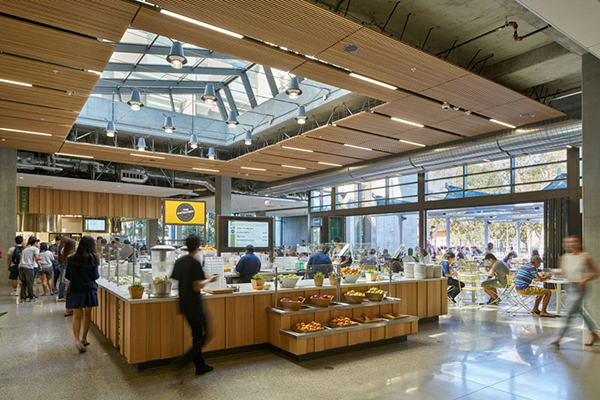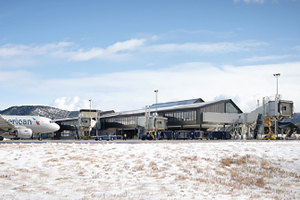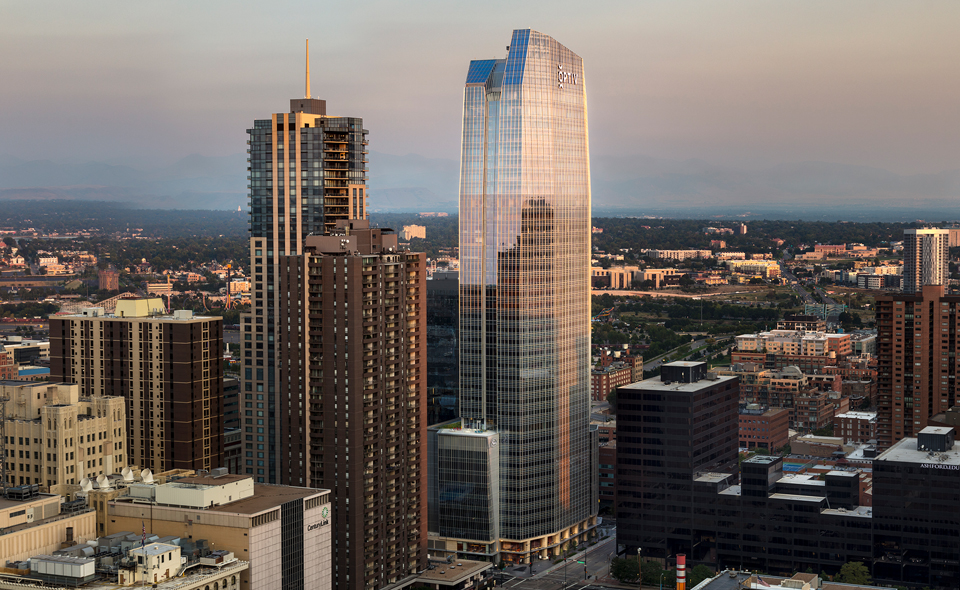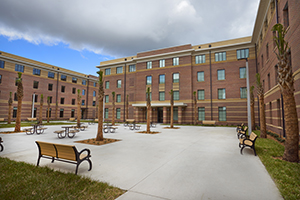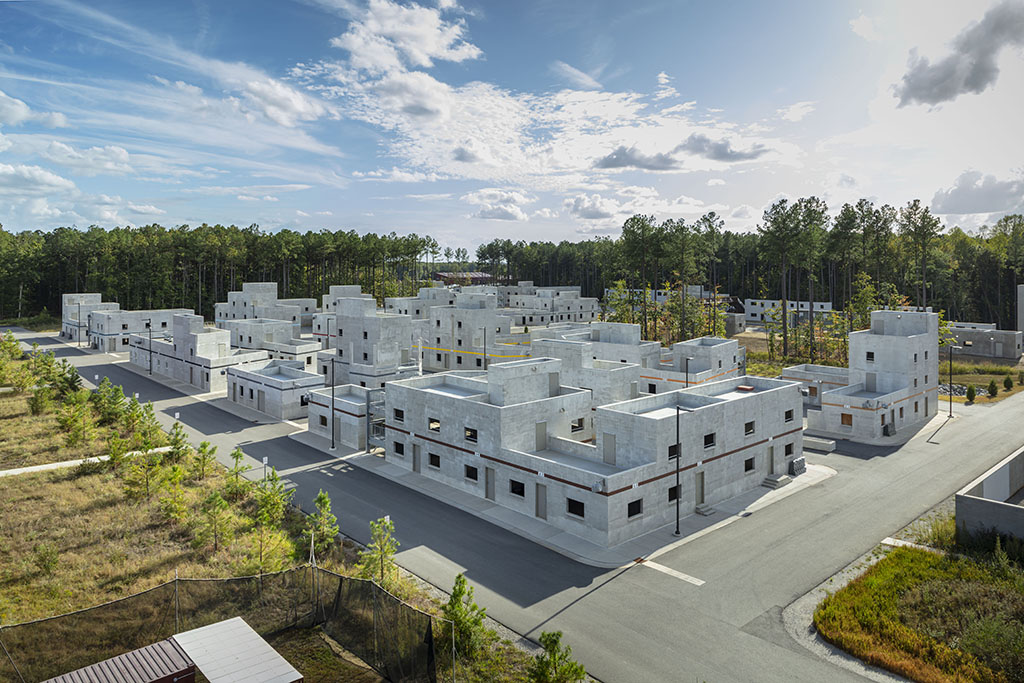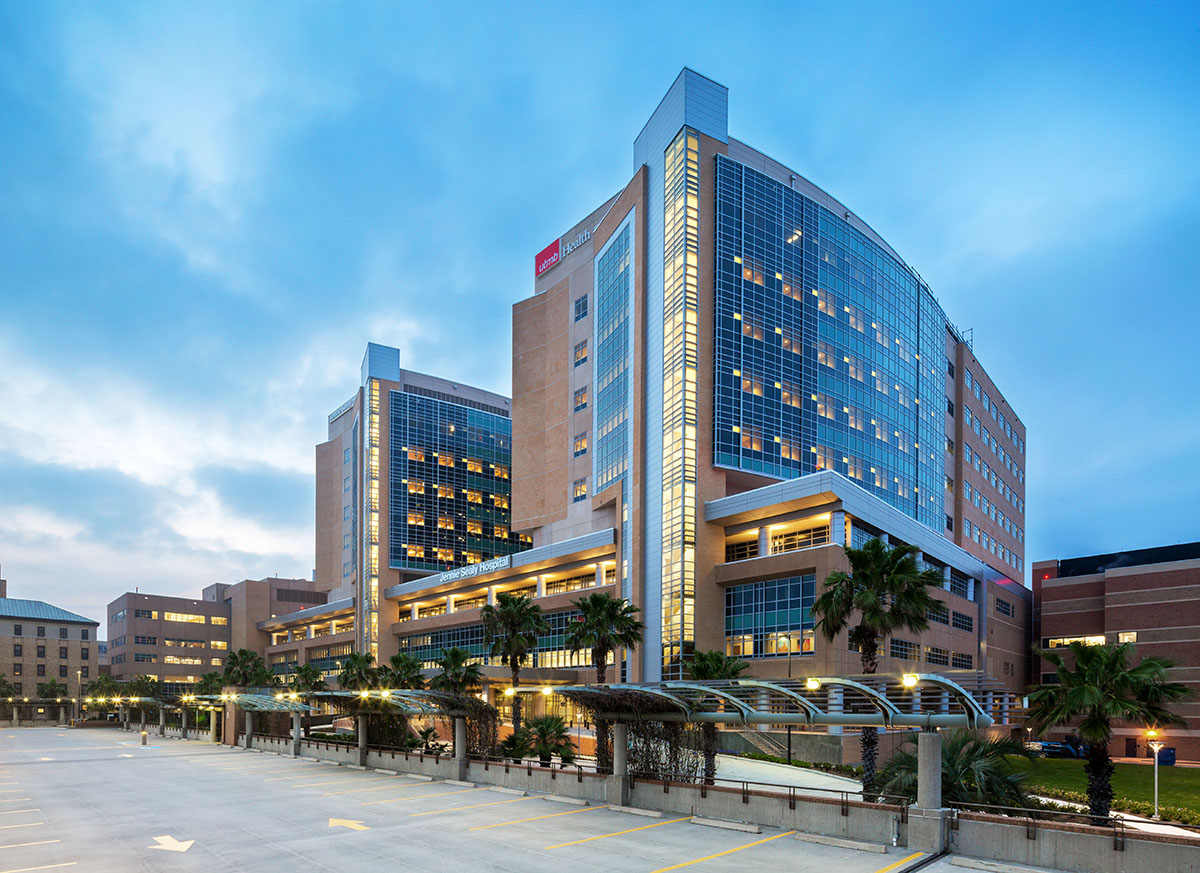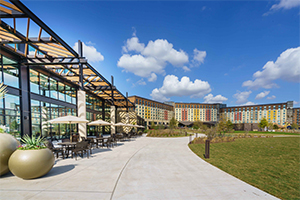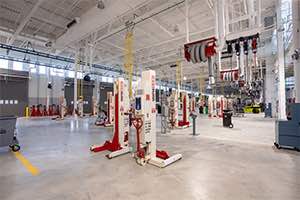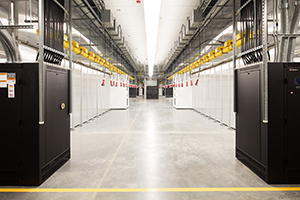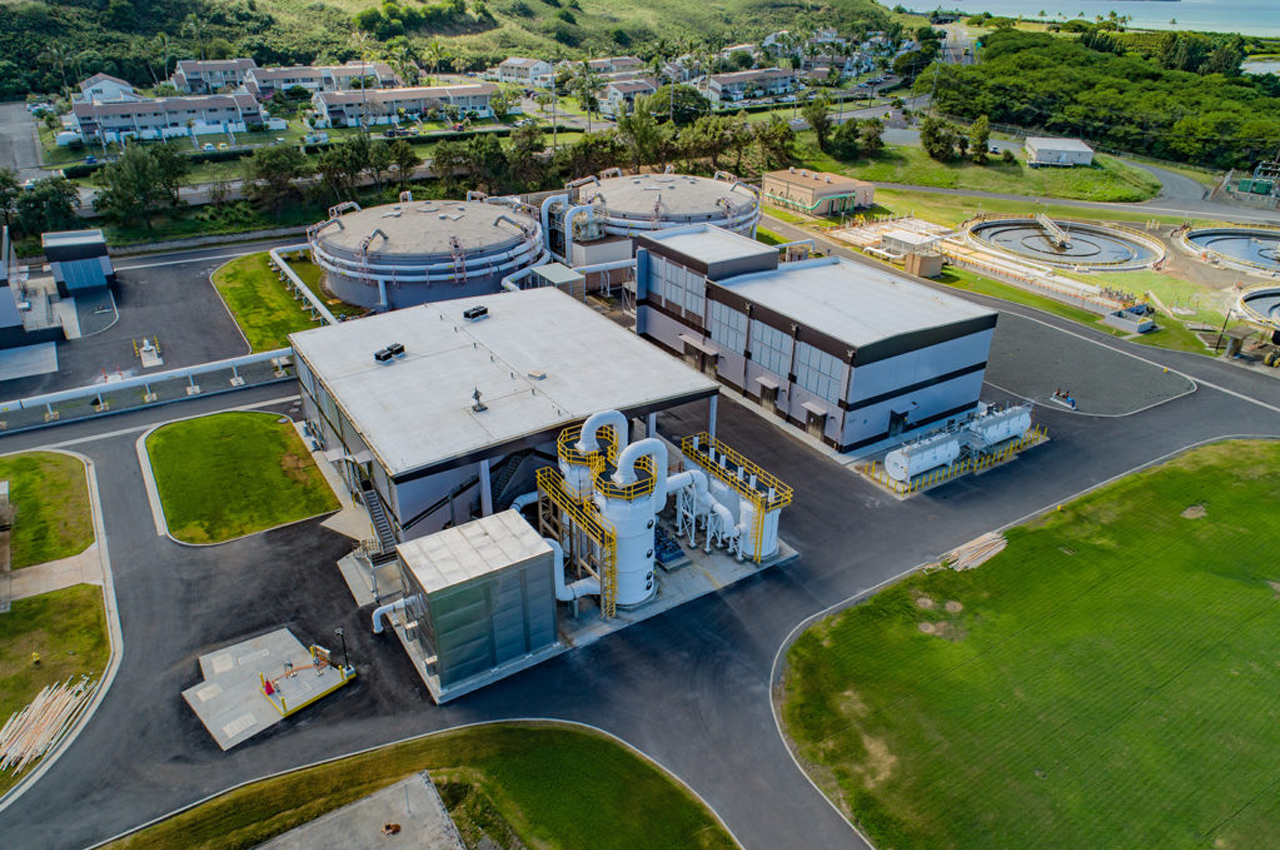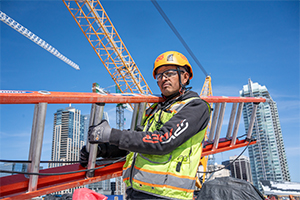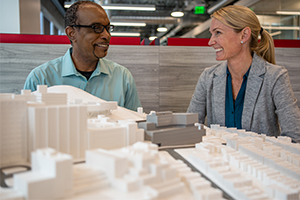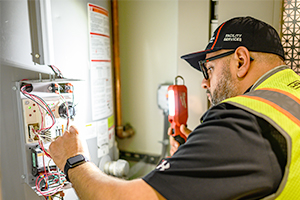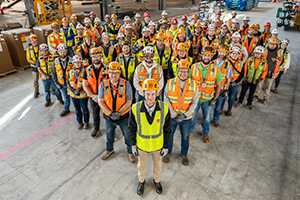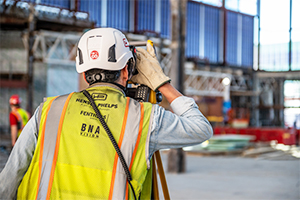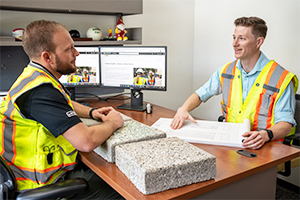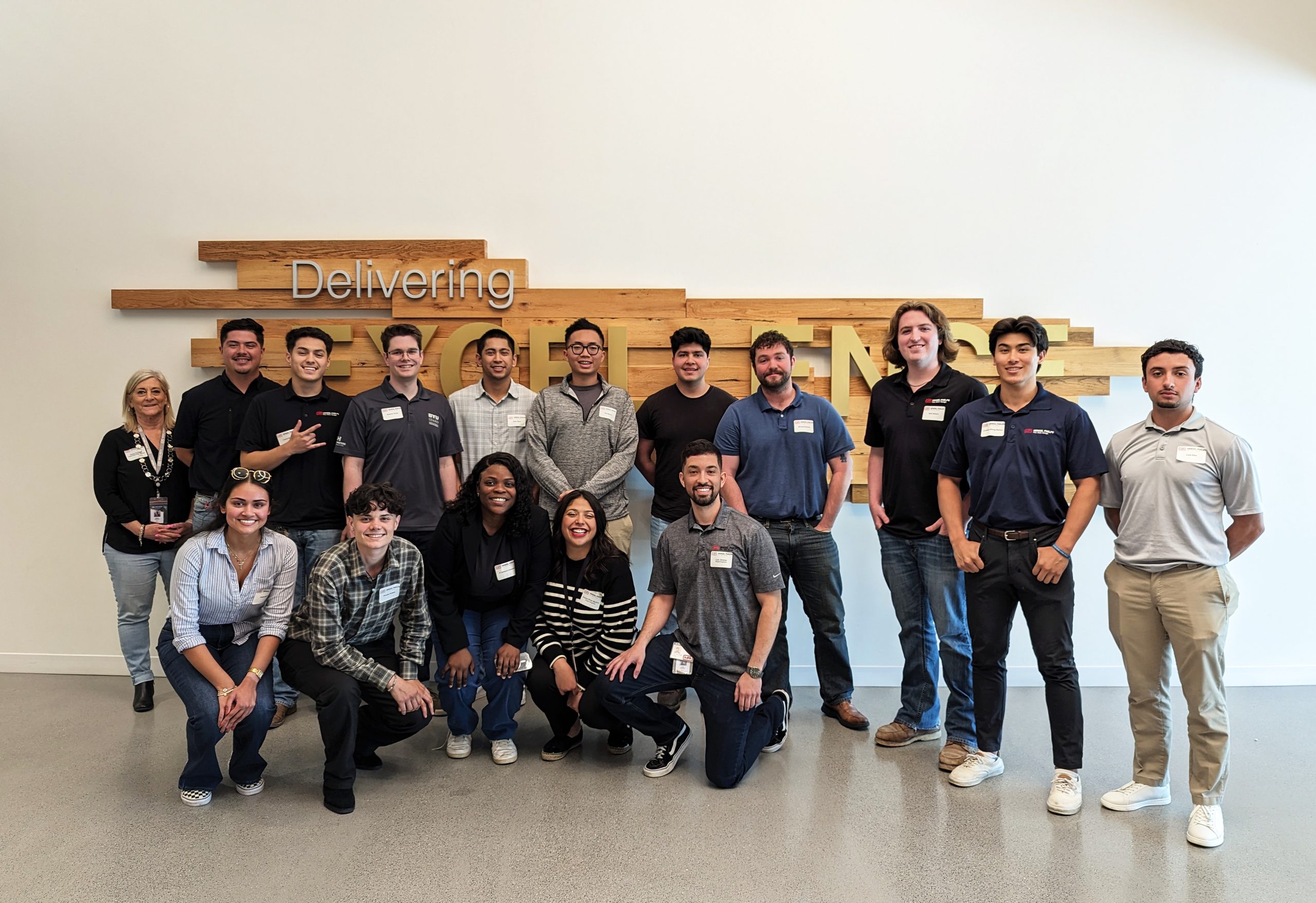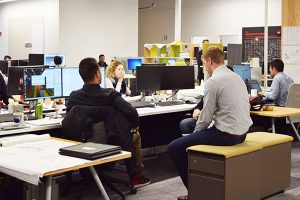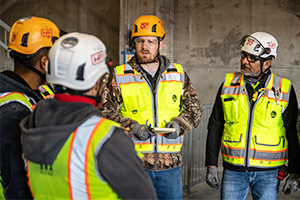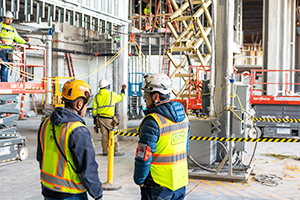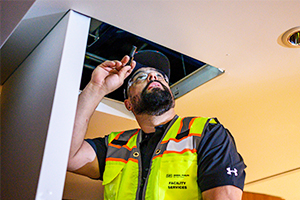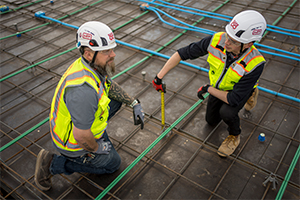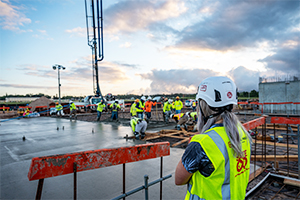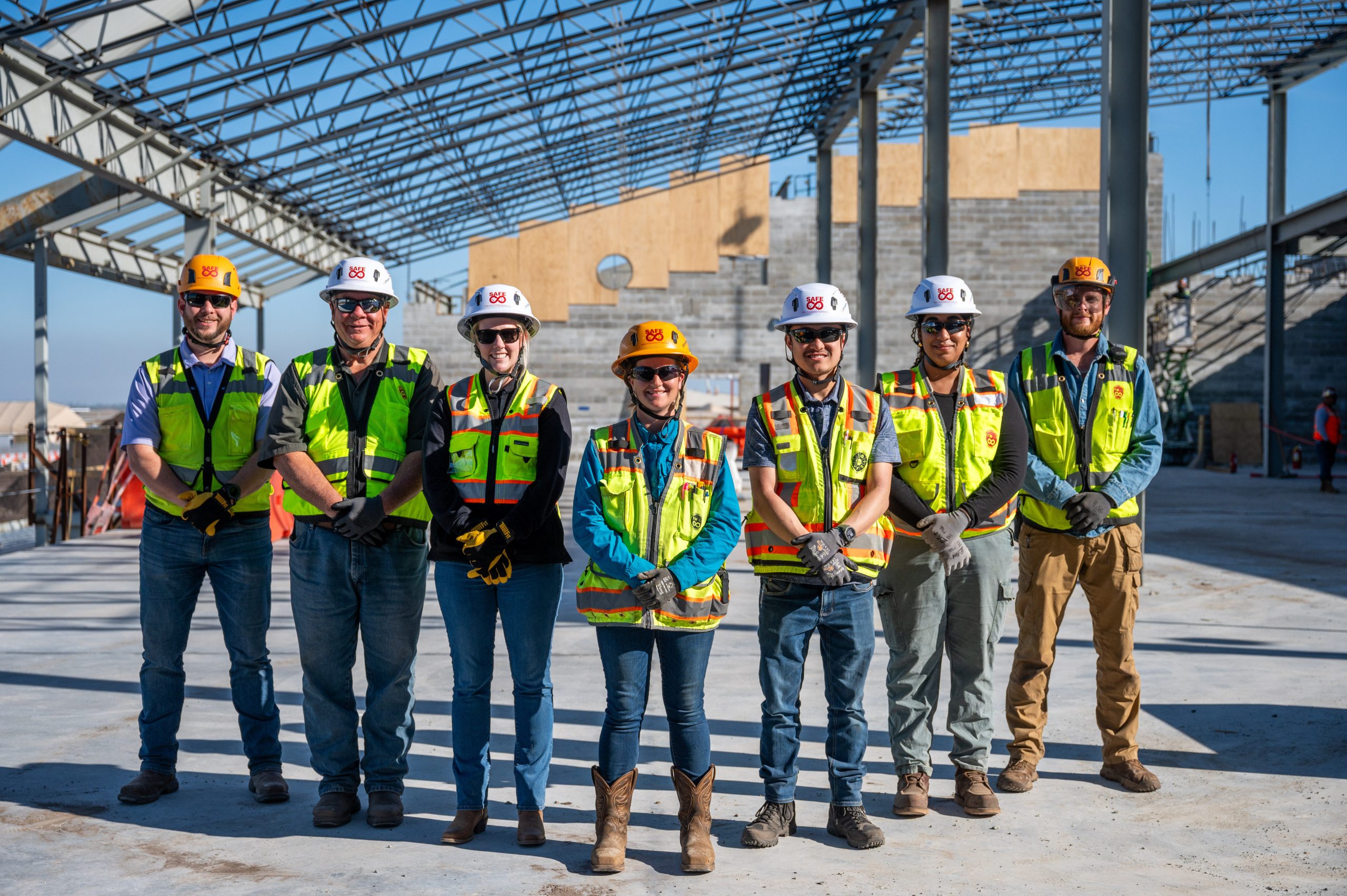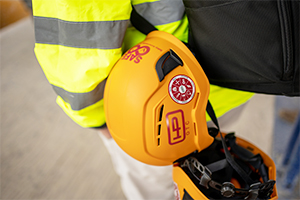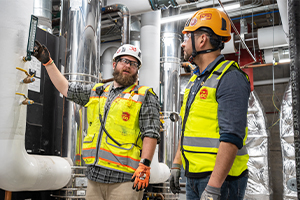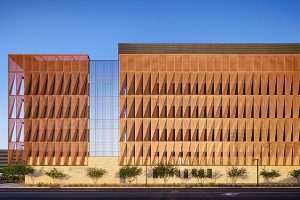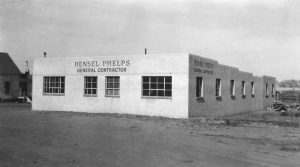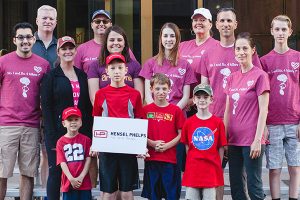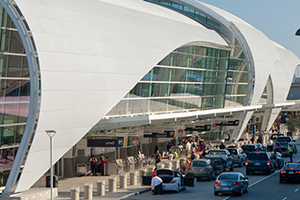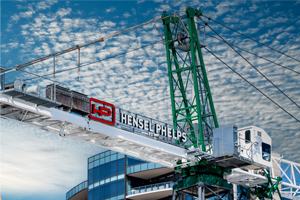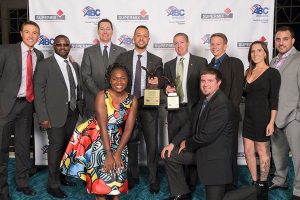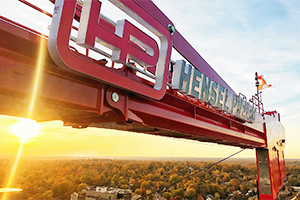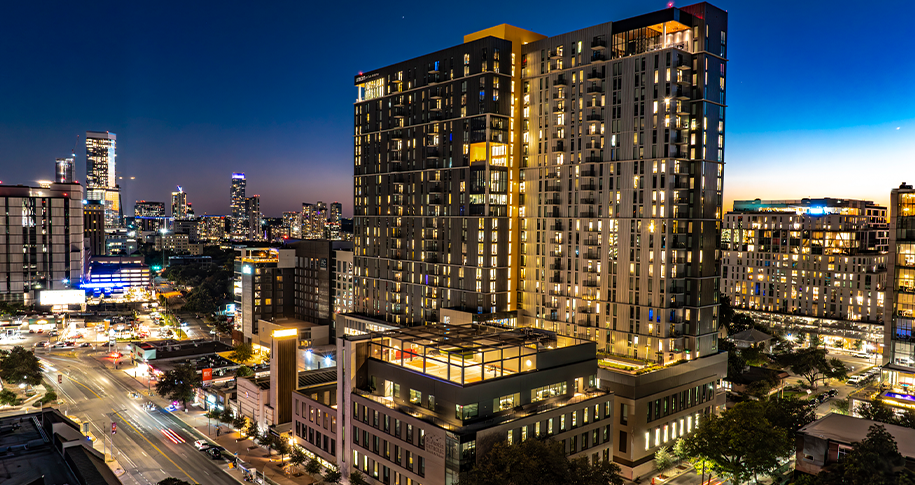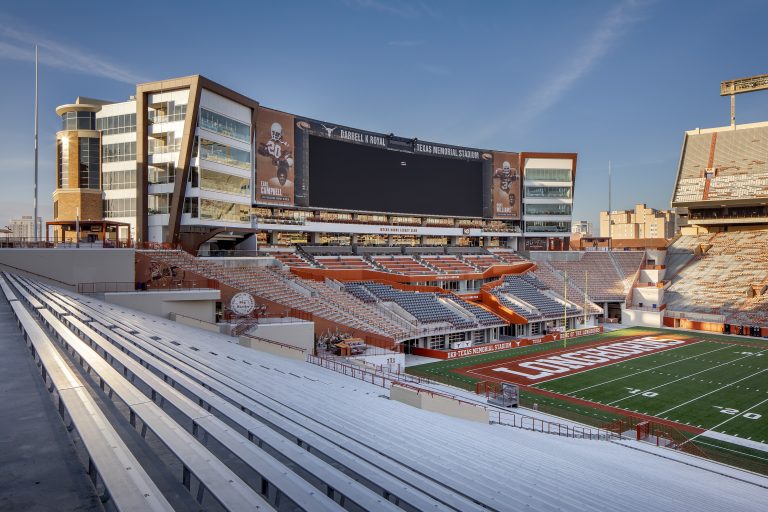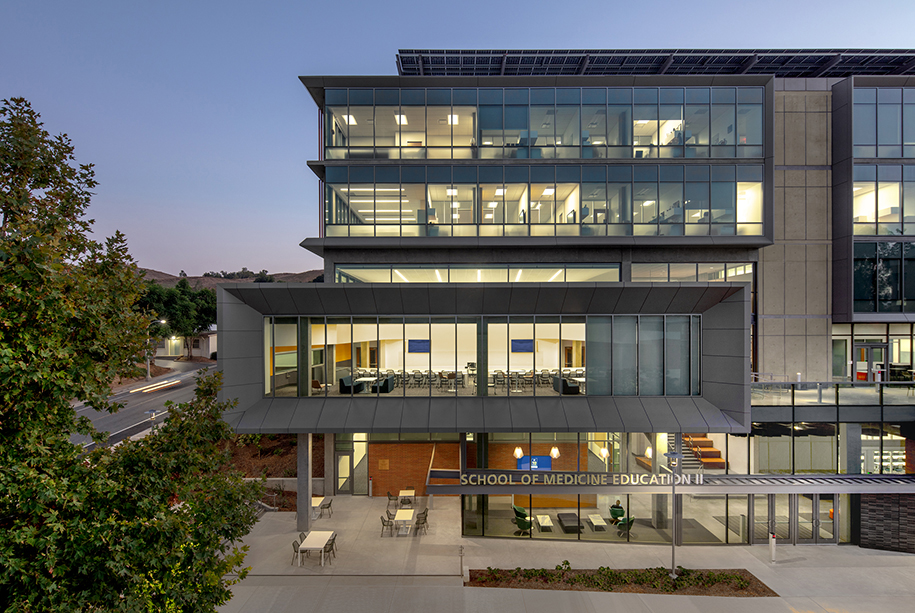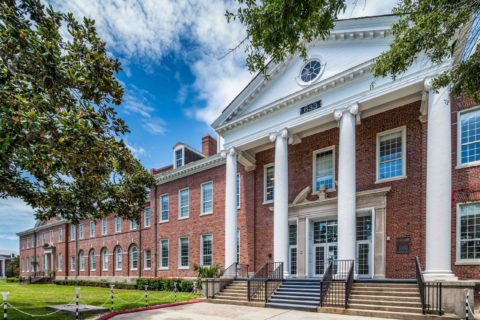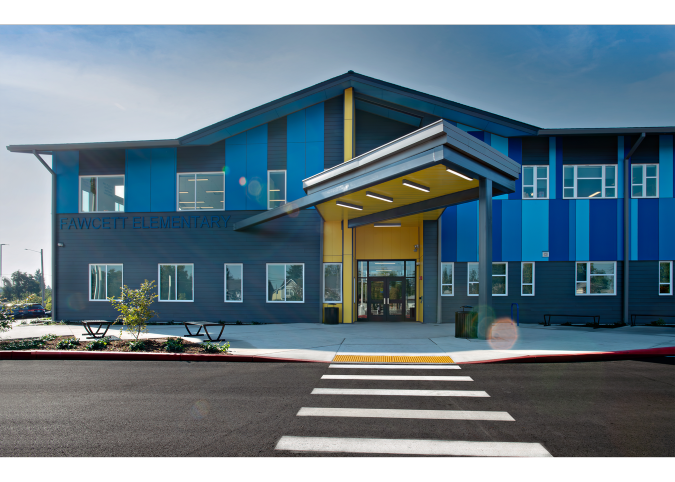About the Project
The Resnick Sustainability Center (RSC) is a modern, flexible research building capable of supporting and expanding the research work of the Resnick Sustainability Institute (RSI). It hosts facilities for four of the RSI’s research centers: 1) an Ecology and Biosphere Engineering Facility, 2) a Solar Science and Catalysis Center, 3) a Remote Sensing Center and 4) a Translational Science Facility for pilot testing at scale.
Caltech had several key goals for the RSC–to be a hub for sustainability research and education, reflecting Caltech’s commitment to addressing global challenges related to energy and resource utilization, to bring together scientists, engineers, students and faculty from various disciplines to foster collaboration and innovation, to provide state-of-the-art facilities and specialized equipment to support groundbreaking research in sustainability, to serve as an educational resource, offering teaching laboratories and shared meeting spaces to encourage interaction and idea exchange and to incorporate advanced sustainable technologies and materials, aiming for LEED Platinum certification.
The RSC incorporates numerous advanced sustainability features, including a high-performance exterior envelope, a fully glazed north atrium and western façade that maximizes natural light, solar shading fins that reduce heat gain, highly energy-efficient mechanical and electrical systems and a striking mass timber frame that reduces embodied carbon. Outside, rooftop photovoltaic arrays generate power for research and operations, while native plantings and stormwater dry wells increase the building’s sustainability.
“In certain ways, Caltech is conducting an experiment that really hasn’t been done in sustainability. We are building an institute that really tries to pull, essentially, all of the campus toward problems in sustainability. We need all hands on deck.”
JONAS PETERS, RESNICK SUSTAINABILITY INSTITUTE DIRECTOR
Challenge
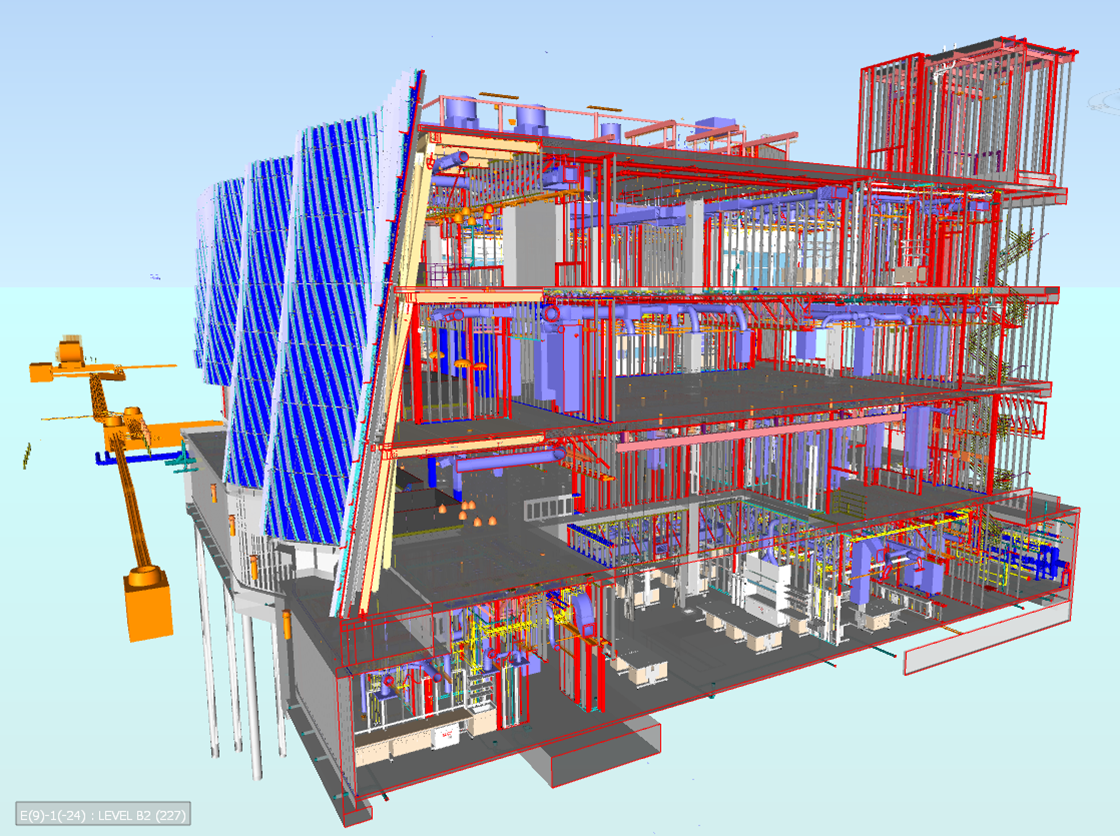
The design-build team’s greatest challenge while building the one-of-a-kind Resnick Sustainability Center was to achieve LEED Platinum certification while incorporating the functional needs of a highly specialized research facility that fosters collaboration across different disciplines. Research laboratories typically require significant energy to operate specialized equipment, maintain controlled environments and ensure proper ventilation. Also, research needs can change rapidly, requiring laboratories to be flexible and adaptable.
Solution
The team used innovative solutions to meet LEED Platinum standards while addressing the needs of the bespoke collaborative research facility.
They integrated advanced sustainable technologies and materials, including a mass-timber structure, which is a renewable resource with less embodied carbon than steel or concrete. This approach reduced construction waste through precise off-site prefabrication and creates a warmer, healthier interior environment due to its biophilic nature. However, mass timber is less effective at dampening vibrations in laboratories with sensitive equipment. To address this, the team used concrete for laboratory spaces and mass timber for non-laboratory spaces on the north and west elevations, supporting the organic glass façade and high-traffic common spaces.
The façade features an undulating, cold-warped glass curtainwall, with each glass panel twisted to match the building’s complex geometry. This unique design creates a flowing, organic appearance that is both visually striking and functional via reduced solar heat gain and improved energy efficiency. The inherently collaborative nature of a design-build team structure allowed Hensel Phelps, Yazdani Studio of CannonDesign, trade partners and consultants to simultaneously model the mass timber space frame, glass curtainwall panels and their connection points. This close collaboration informed the design and construction approach, ensuring the RSC incorporated innovative solutions while adhering to the schedule and budget.
To foster cross-disciplinary collaboration, the facility includes adaptable, high-performance research spaces and common meeting areas. This flexibility accommodates diverse research needs and encourages interaction and idea exchange among occupants.
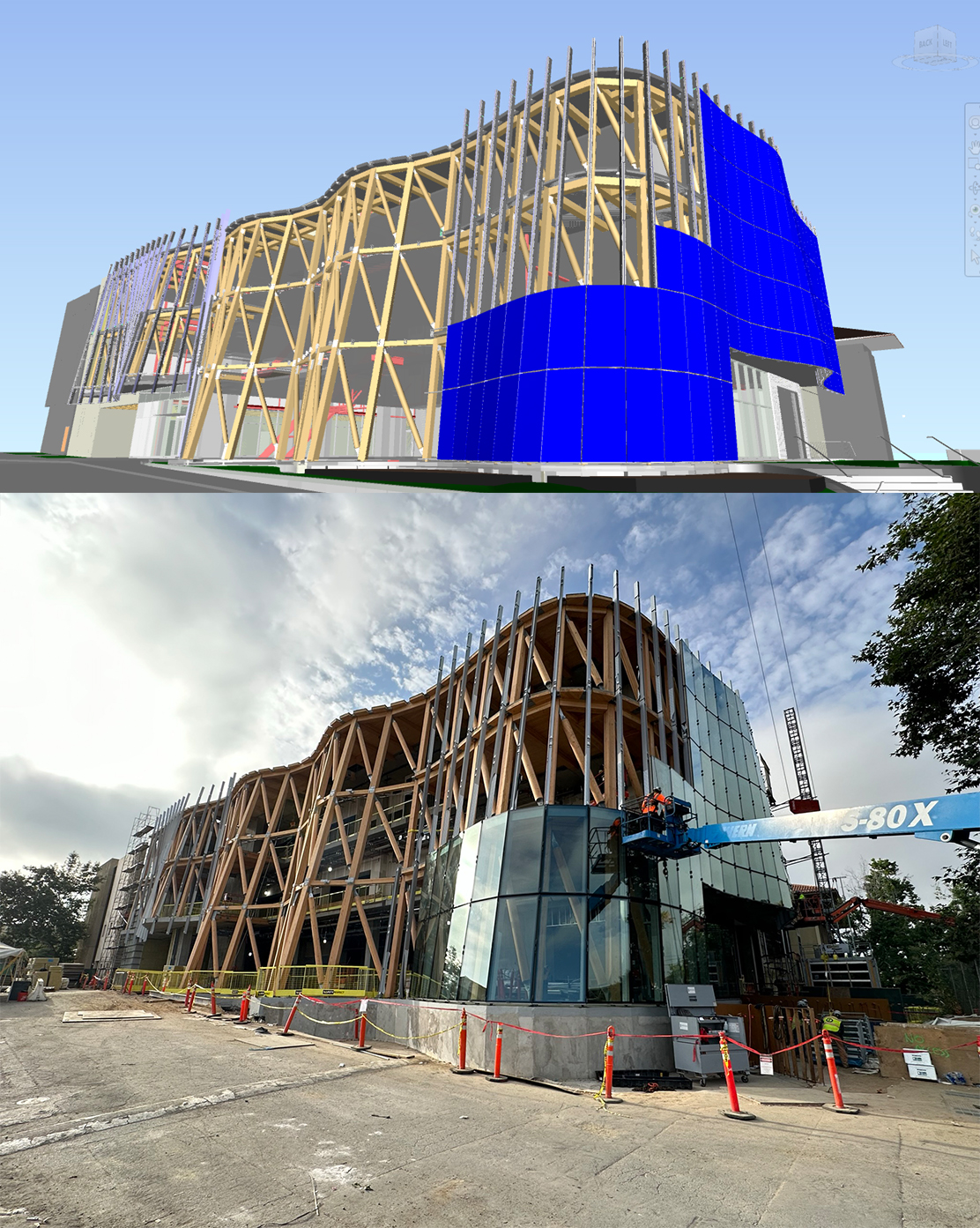
Result

These solutions enabled the design-build team to meet the ambitious sustainability goals for the RSC, creating a state-of-the-art facility for cutting-edge research at Caltech. The center is a significant addition to the campus, serving as a hub for sustainability research and education. It unites scientists, engineers, students and faculty from various disciplines to tackle global issues related to energy and resource utilization.
Awards
2024
- AIA Los Angeles – Building Team of the Year
- AIA Pasadena – Merit Award – Unbuilt Category
2022
- Los Angeles Business Council – Architectural Award – Under Construction Category
- Southern California Development Forum – Design Award – Unbuilt
- Fast Company – Innovation by Design – General Excellence, Spaces and Places
- Fast Company – Innovation by Design – Sustainability
2021
- AIA Los Angeles – Design Award – Educational Facility


